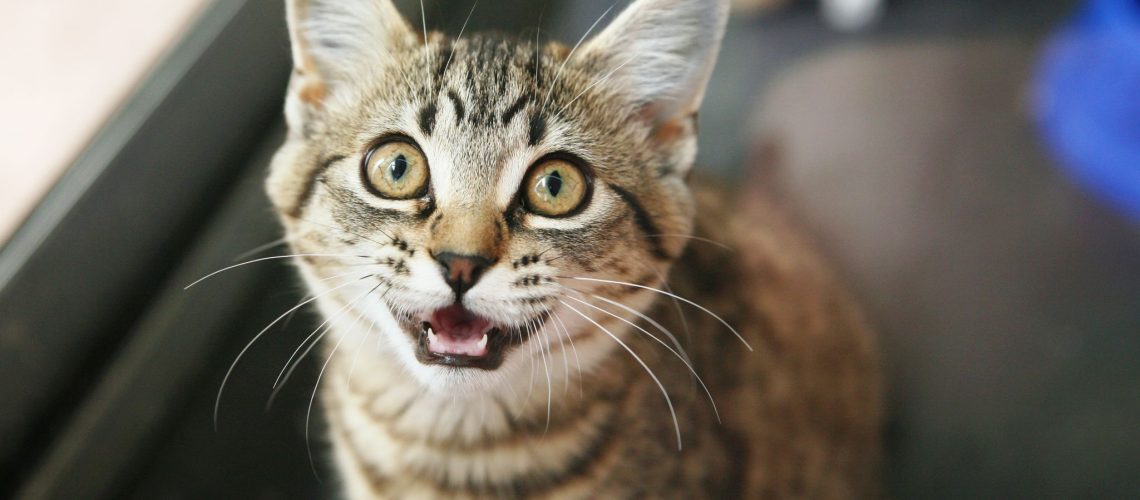Have you ever wondered if your furry feline friend can actually recognize their own name? It's a question that has puzzled cat owners for ages. But why does it matter? Well, understanding whether cats can truly understand and respond to their names can have a significant impact on the way we communicate with them. Imagine being able to call your cat by name and have them come running to you! In this article, we will delve into the fascinating world of feline cognition and explore whether cats really recognize their names. Get ready to uncover the secrets behind your cat's mysterious behavior and discover how you can strengthen your bond with them. Prepare to be amazed as we unravel the truth about our beloved whiskered companions.
Key Takeaways:
- Cats are able to recognize and respond to their own names.
- They may not always show a strong reaction, but they do understand that their name is associated with them.
- Cats can distinguish their names from other words or sounds in their environment.
- Their ability to recognize their names may vary depending on factors such as the cat's personality and training.
- Using positive reinforcement and consistent repetition can help strengthen a cat's association with their name.
Do Cats Know Their Names? Find Out!
The Curiosity of Cat Owners
As a cat owner, have you ever wondered if your furry friend actually knows its name? It's a question that has intrigued many pet owners for years. We all know that dogs can easily recognize and respond to their names, but what about cats? Cats are known for their independent nature, so it's natural to wonder if they pay any attention when we call them. In this article, we'll explore the fascinating world of feline cognition and find out if cats truly know their names.
Understanding Feline Communication
Before delving into whether cats recognize their names or not, it's important to understand how they communicate. Cats primarily rely on body language, vocalizations, and scent marking to convey messages. Unlike dogs who use barking as a means of communication, cats tend to be more subtle in expressing themselves. They use various vocalizations like meowing, purring, hissing, and chirping to communicate with humans and other animals.
The Importance of Cats Recognizing Their Names
Bonding with Your Cat
When your cat recognizes its name, it strengthens the bond between you and your feline companion. Calling your cat by its name allows you to get its attention and establish a connection. This is especially important during training sessions or when you need your cat to come to you quickly. When your cat responds to its name, it shows that it acknowledges your presence and is willing to engage with you.
Safety Measures
Knowing if your cat recognizes its name can also be crucial for safety reasons. If your cat accidentally escapes outdoors or gets lost inside the house, calling its name can help bring it back or locate it easily. By recognizing its name, your cat will associate it with safety and familiarity, making it more likely to respond when called.
How Scientists Determine if Cats Recognize Their Names
Scientific Studies and Experiments
Scientists have conducted various studies and experiments to determine whether cats recognize their names. These studies involve observing the cats' reactions to different stimuli, including their names. Researchers use a combination of visual cues, vocalizations, and positive reinforcement techniques to assess the cats' responses.
Testing Name Discrimination
One method used by scientists is name discrimination testing. In these experiments, researchers play a series of recorded words or names, including the cat's name, and observe the cat's reaction. If the cat shows a distinct response when its name is called compared to other words or names, it indicates that the cat recognizes its own name.
What Japanese Researchers Discovered About Cats and Name Recognition
The Study Conducted at Tokyo University
In a study conducted at Tokyo University in Japan, researchers found evidence that cats can indeed recognize their names. They observed domestic cats in various environments and played recordings of their owners calling their names. The researchers noted that the cats displayed more attentive behaviors like ear movement or head turning when they heard their own names compared to other words or names.
Limitations of the Study
It's important to note that while this study provides evidence for name recognition in cats, it doesn't necessarily mean that all cats possess this ability. Each cat has its own unique personality and level of responsiveness. Some cats may be more attuned to human communication and show a stronger recognition of their names than others.
Can All Cats Recognize Their Names or Just Some?
Variation Among Individual Cats
Just like humans have different levels of intelligence and language comprehension, cats also vary in their ability to recognize their names. Some cats may quickly learn and respond to their names, while others may not show the same level of recognition. Factors such as the cat's age, breed, and previous training experiences can influence its ability to understand and respond to its name.
Building a Stronger Connection
Regardless of whether your cat fully recognizes its name or not, you can still build a strong bond with your feline companion through positive reinforcement training and spending quality time together. Cats are highly perceptive animals that can sense your emotions and intentions. By showing love, care, and consistent communication with your cat, you can deepen your connection and create a loving relationship.

How Cats Show They Recognize Their Names
Direct Eye Contact
When a cat recognizes its name, it may make direct eye contact with its owner when called. This is a sign that the cat acknowledges the sound as something associated with itself and is paying attention.
Movement or Ear Twitching
Cats that recognize their names may also exhibit subtle movements or ear twitching when they hear their names being called. This indicates that they are processing the sound and responding to it in some way.
Approaching or Responding
In some cases, cats that recognize their names may approach their owners or respond vocally when called. This behavior shows that the cat understands the association between its name and positive interaction with its owner.
The Benefits of Knowing if Your Cat Recognizes Its Name
Effective Communication
When your cat recognizes its name, it becomes easier to communicate important messages or commands effectively. Whether you need your cat to come inside from outdoors or simply want to get its attention for playtime or feeding, calling its name allows for clear communication.
Enhanced Training Possibilities
If your cat recognizes its name, it opens up possibilities for more advanced training. You can teach your cat specific commands or behaviors by associating them with its name. This can be particularly useful for activities like leash training or teaching tricks.
Strengthened Bond and Trust
When your cat responds to its name, it strengthens the bond between you and your furry friend. It shows that your cat trusts you and is willing to engage with you on a deeper level. This mutual understanding and connection can lead to a happier and more fulfilling relationship with your feline companion.
In conclusion, studies suggest that cats are capable of recognizing their names. While they may not always respond immediately, they can distinguish their names from other words and sounds. So, the next time you call your cat's name, know that they might just be acknowledging you!
How do you know if your cat knows its name?
Indeed, cats do react to their names. Although it may not be as noticeable as a dog's response, cats are capable of recognizing their names and reacting in various ways. The most obvious reaction is when a cat looks up or turns its head when called by its name.
How long until a cat knows its name?
There is no definitive answer as each cat is different. Certain cats, especially young kittens, may be quick learners and can learn their name within the first week. However, older cats may take a bit longer to learn. To speed up the process, it can be helpful to involve other family members in the training.
Do cats know who their owner is?
Addressing a longstanding gap in feline research, a recent small study reveals that cats have the ability to differentiate their owners' voices from those of unfamiliar individuals. As someone who lives with a cat, I frequently engage in conversations with this small predator who happens to sleep on my pillow.
Can cats understand names and recognize faces?
According to the researchers in Scientific Reports, only domestic cats were able to recognize a specific cat's face when they heard its name. This suggests that they were able to connect the name with a specific individual and anticipate their appearance.
Do cats know you kiss them?
Cats have a different understanding of kisses compared to humans. Cats have a distinct way of interpreting emotions and expressing affection. However, some cats recognize that kisses are a human gesture of love and affection. Preferences vary among cats, with some enjoying kisses and others not.
How long can a cat remember a person?
In summary, cats have a strong memory and can remember people, places, and events. They can recognize individuals who have treated them kindly for up to 10 years. Cats also have the ability to form negative memories and will avoid anything associated with traumatic experiences in their lives.

















